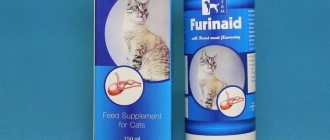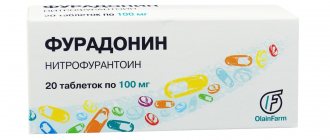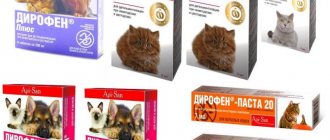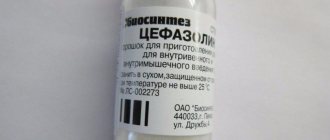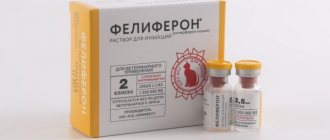Monural for cystitis: one-time use
The dream of any sick person is to take medicine once and get well.
And now such a drug has been found for the treatment of cystitis - this is monural. How effective is Monural for cystitis? Will only one tablet be enough? Monural is the trade name of the drug fosfomycin (a broad-spectrum antibiotic), which is a derivative of phosphonic acid. Its unique mechanism of action is based on the fact that the drug neutralizes the enzyme pyruvyltransferase, without which the construction of the bacterial wall is impossible.
https://www.youtube.com/watch?v=YySQElwPO44
A distinctive feature of the medicine for cystitis Monural is the frequency of its use. For an acute illness of an infectious nature, a one-time dose at night after emptying the bladder is sufficient; the dosage is three grams. In less than three hours, the concentration of the antibiotic in the lower parts of the urinary system will reach its maximum, and the patient will feel the therapeutic effect in the form of disappearance of the symptoms of inflammation.
Another advantage is that monural tablets for cystitis are practically safe, since the drug substance does not bind to blood plasma proteins, most of it is excreted unchanged by the kidneys, with virtually no effect on other organs and systems. This allows it to be used for diseases not only in women and men, but also in children starting from the age of five.
For pregnant and lactating women, the drug is prescribed when the use of other drugs for the treatment of cystitis has proven ineffective and the benefits of therapy may outweigh the potential harm to the fetus. Fosfomycin crosses the placenta and into breast milk, so it can have an effect on the baby.
The powder also has an immunomodulatory effect, which is alien to almost all antibiotics. The protective effect of monural on the kidneys and hearing organs has been proven with the simultaneous use of antibiotics (aminoglycosides, polymyxin) with ototoxic and nephrotoxic side effects. There are very few bacteria resistant to fosfomycin - about 1%.
Monural is excreted from the body within 80 hours, which is quite enough to effectively destroy pathogenic microflora in the urinary tract. It is successfully used for preventive purposes during the period before and after medical manipulations on the urethra (surgical interventions, catheterization).
Classification
Most often, there is an infectious inflammation of the urinary tract, but an idiopathic variant of the disease, which develops in the absence of pathogenic microorganisms, is also possible. Diseases of the lower urinary tract have the following types: acute (infectious/non-infectious) and chronic cystitis.
Possible types of inflammation:
- Polypoid. Polyps (benign neoplasms) form in the urinary reservoir.
- Eosinophilic. It is provoked against the background of food allergies or the penetration of bacteria, foreign proteins, or parasites into the body.
- Hemorrhagic. Develops against the background of poorly performed surgical operations (after sterilization) or other urological manipulations.
- Emphysematous. It develops due to bacterial infections that provoke the accumulation of gases, leading to the appearance of formations in the walls of the tank.
- Pseudomembranous. Necrotizing process of the urinary mucosa with the formation of dense films that do not separate from the wall of the bladder.
When elements of bone tissue are detected in the urinary reservoir, an ossifying type of pathology occurs, associated with metastases of osteosarcoma.
Composition and properties of the drug
The main active ingredient is fosfomycin, a uroantiseptic that kills gram-positive and gram-negative types of bacteria that actively multiply in the genitourinary organs and cause the inflammatory process. Excipients included to give the medicine a good taste are sucrose and flavorings (orange or tangerine).
Manural acts on the metabolic processes occurring in bacterial cells, destroying their cell membrane. The drug creates an obstacle to the attachment of pathogens to the walls of the mucous membrane of the genitourinary organs. The result of this is the death of harmful microflora.
Before starting to take Monural, it is best to undergo the necessary tests to make an accurate diagnosis and identify the bacteria that caused the disease. This is necessary due to the resistance of some types of bacteria to popular domestic and imported antibacterial drugs.
IT IS IMPORTANT TO KNOW! A remedy for iron potency that acts immediately.
Accurately establishing the type and reaction of harmful microorganisms to the drug is the most important condition for future effective treatment.
coli; staphylococci of various types; clesiella; citrobacter;
Morganella; Proteus.
Monural is prescribed for treatment in medical practice for diseases:
- acute cystitis caused by bacteria;
- exacerbation of chronic inflammation of the bladder;
- bacteriuria during pregnancy (may be asymptomatic);
- prevention of exacerbations in chronic urethritis;
- in the postoperative period - to avoid infection in the urinary tract;
- during the preparation period before surgery on the genitourinary organs or invasive diagnostic methods.
- for acute and chronic cystitis;
- acute and chronic urethritis (inflammation of the urethra), which is caused by staphylococcal intestinal microflora;
- for the prevention of infectious diseases of the kidneys and urinary tract during surgical and diagnostic interventions on them;
- in pregnant women with latent infections.
"Monural" is available in different forms. For cats, veterinarians prescribe powder, which is then diluted to a solution. The product prevents the proliferation of pathogenic microorganisms by blocking the synthesis of the bacterial cell wall. The drug has an antibacterial effect due to its components.
- fosfomycin trometamol;
- natural flavor (tangerine/orange);
- saccharin;
- sucrose.
What is cystitis and why does it occur in dogs?
This term in veterinary medicine refers to the inflammatory process in the dog’s bladder. Animals of any age are susceptible to this disease. Cystitis is equally common in both puppies and adult animals. However, the disease is more often diagnosed in representatives of dog breeds that are small in stature, such as dachshund, cocker spaniel, and beagle.
| Forms of canine cystitis | Description | Causes of the disease |
| Catarrhal | This is one of the most common forms of pathology, characterized by increased protein content in the urine. Its main distinguishing feature is the limited nature of the inflammatory process. The inflammation does not extend beyond the walls of the bladder. This form is characterized by a sharp onset and acute course. This type of cystitis is provoked by pathogenic agents. |
Infections can enter the bladder in 2 ways. When entering by descending route, E. coli, staphylococci, streptococci, chlamydia, candida, pasteurella penetrate from other organs through the lymph or blood, ascending through the urethra. |
| Dystrophic | This form of the disease occurs against the background of permanent damage to the walls of the bladder. In this case, exfoliated epithelial cells are present in the urine. In the absence of timely treatment, the inflammatory process quickly becomes chronic. | |
| Hemorrhagic | Hemorrhagic cystitis is manifested by the appearance of blood in the urine. This occurs due to the fact that in the animal’s body the mucous membranes of the walls of the bladder are severely damaged, which leads to injury to the blood vessels and, as a result, to bleeding. This is a very dangerous condition that requires immediate treatment. | |
| Purulent | This form is accompanied by the release of purulent exudate from the dog’s genitals. This occurs against the background of damage to the walls of the bladder and the gradual death of cells. |
Reviews
If monural has so many advantages, then why is it not always used during acute urinary tract infections? The first reason why not everyone can use the antibiotic for cystitis monural is that its price is quite high compared to other drugs and averages $10.
There are, although few, bacteria that can resist the antibiotic. These are Serracia and some species of Klebsiella. However, patients are understandably disappointed when they pay for a drug and it has no therapeutic effect. The doctor prescribed it, counting on the breadth of antimicrobial action of fosfomycin, without receiving the results of bacteriological tests, focusing on the speed of the effect;
The drug is contraindicated in renal failure. Monural is prescribed extremely rarely for chronic cystitis and relapses; it is indicated only for acute attacks.
How to take monural for cystitis? Before bed, once, after emptying the bladder. By the way, this particular technique is another drawback; the disease can appear at any time of the day.
In any case, the drug for cystitis monural is prescribed by a doctor, and the safety and effectiveness of its use during acute cystitis exceeds most known antibiotics.
There are, although few, bacteria that can resist the antibiotic. These are Serracia and some species of Klebsiella. However, patients are understandably disappointed when they pay for a drug and it has no therapeutic effect. The doctor prescribed it, counting on the breadth of antimicrobial action of fosfomycin, without receiving the results of bacteriological tests, focusing on the speed of the effect;
Disease prevention
Prevention of cystitis is simple:
- eliminate the possibility of your pet's hypothermia (shorten walks on cold rainy days, do not allow your dog to swim in unheated bodies of water);
- watch the litter: it should not be wet;
- feed the animal fully and balanced.
Cystitis is a disease that often goes unnoticed, but it is necessary to treat it, because it can lead to inflammation of the kidneys. Be attentive to your dog's health and take him to the vet regularly.
Antibiotic for people: when will a cat need it?
In case of hypothermia, the animal may develop various diseases, including cystitis.
Veterinarians prescribe Monural for cystitis. Many members of the cat family are susceptible to this disease. It develops against the background:
- hypothermia;
- infectious and chronic diseases;
- metabolic disorders;
- stressful situations;
- injuries in the abdomen/back area.
It is important to identify the disease at an early stage in order to provide timely assistance. The main indications for prescribing Monural by specialists may be:
- acute form of bacterial cystitis;
- infection of the urinary system;
- urethritis;
- acute relapse of cystitis.
Therapy for bladder inflammation
relieving spasms and eliminating pain (use of antispasmodics and analgesics); cleansing the bladder of inflammatory contents (introducing antiseptic and antibacterial fluids using a catheter); in case of signs of dehydration - droppers, the duration of which will depend on the quality and quantity of urine excreted. Carry out cystoscopy or x-ray (in cases of extreme necessity, since the procedures require certain specialist skills).
When concomitant diseases are identified - gastrointestinal tract, kidneys, metabolic disorders, symptomatic therapy must necessarily be accompanied by treatment of the underlying disease.
Symptomatic therapy is only permissible for this cat pathology, but it is important to make sure 100% that the animal has this particular form of the disease. Two permanent schemes are being developed - therapeutic and preventive. They are followed for the rest of the animal's life. Be sure to provide your pet with favorable living conditions (proper nutrition, minimizing stress and possible hypothermia).
- relieving spasms and eliminating pain (use of antispasmodics and analgesics);
- neutralization of the cause of inflammation and elimination of the bacterial component of the disease (antibiotic therapy);
- cleansing the bladder of inflammatory contents (introducing antiseptic and antibacterial fluids using a catheter);
- in case of signs of dehydration - droppers, the duration of which will depend on the quality and quantity of urine excreted.
Symptoms of cystitis in cats
Although the animal often goes to the litter box and strains very hard, sometimes it still fails to pee. And during urination, the cat moves its hind legs and cannot find a comfortable position.
the pet visits the litter box more often, does not allow his tummy to be touched due to pain, and sometimes drinks more water than usual. But all these symptoms may not only indicate cystitis. When heat is approaching or the cat is stressed, these symptoms may well be observed. Sometimes these symptoms are signs of other cat diseases.
- Acute cystitis;
- chronic cystitis during exacerbation;
- urethritis (inflammation of the urethra);
- abundant bacteriuria (excretion of microorganisms in the urine) in pregnant women, characterized by an asymptomatic course;
- postoperative inflammatory diseases of the urinary tract;
- prevention of urinary tract infections after operations or diagnostic procedures.
- Children under 5 years of age;
- hypersensitivity to fosfomycin or other components of the drug;
- severe renal failure.
- From the gastrointestinal tract – nausea. vomit. heartburn. diarrhea. With plenty of drinking, these phenomena usually disappear.
- Allergic reactions in the form of skin rash and itching.
- In case of overdose, diarrhea (diarrhea) may occur.
- Recurrent bacterial infections;
- elderly age of the patient;
- severe course of the disease:
- lack of results after the first dose of the medicine.
- Urophosphabol;
- Fosmicin;
- Fosfomycin sodium;
- Fosfomycin trometamol;
- Monuril.
- 2 g sachet, 1 piece in a cardboard box. – from 293 to 367 rub.
- 3 g sachet, 1 piece in a cardboard box. – from 331 to 497 rub.
- 2 g sachet, 2 pcs in cardboard packaging. – from 305 rub.
- 3 g sachet, 2 pcs in cardboard packaging. – from 331 rub.
- infectious.
- A sharp decrease in appetite. Every dog owner knows that if nothing bothers his pet and he is healthy, then his appetite is always good, regardless of weather conditions. If a dog suddenly refuses to eat, this may be the first symptom of cystitis.
- exposure to microflora from catheters, dirty hands, when the owner, forgetting to wash his hands, performs hygiene procedures on the dog, such as washing the prepuce in males, or hygiene after giving birth in a female.
- toxic,
- allergic,
Depending on the nature of the disease, there are acute and chronic forms. The acute form requires immediate treatment, since in the absence of treatment it quickly develops into a chronic form, and then takes a long time to be treated. The cause of cystitis is usually the influence of pathogenic microbes that penetrate through the genital tract into the urethra and bladder.
The presence of painful sensations in the animal's bladder. Determined by palpation. Involuntary loss of urine. This happens often, in small volumes and is accompanied by pain in the lower abdomen. The dog whines at this. This symptom is the most characteristic of cystitis. Change in urine color.
If a dog is sick with cystitis, the color of the urine will be cloudy, and the consistency will become mucous, sometimes there are blood impurities in it. Temperature increase. It is accompanied not only by loss of appetite, but also by state and mood becoming depressed. The pet refuses its usual fun, lies a lot and moves little. This may be a sign of already purulent inflammation.
If the listed symptoms of cystitis are detected, the dog must be immediately taken to the veterinarian.
Antibiotics are prescribed only after a sensitivity test has been performed. Based on the results obtained, the doctor will choose the most effective drug and will also prescribe a course of sorbents to reduce the negative impact of antibiotics on the animal’s body.
Clear signs of cystitis
Frequent urination that cannot go unnoticed. Moreover, sometimes, out of pain, the cat begins to do this not only in its litter box, but also wherever it has to, because. The animal begins to associate the toilet with painful sensations. In a chronic course, the process may become uncontrollable due to weakening of the walls of the bladder and ureter;
- Frequent urination that cannot go unnoticed. Moreover, sometimes, out of pain, the cat begins to do this not only in its litter box, but also wherever it has to, because. The animal begins to associate the toilet with painful sensations. In a chronic course, the process may become uncontrollable due to weakening of the walls of the bladder and ureter;
- anxiety while going to the toilet - meowing or plaintive rumbling at the very end of the process due to pain in the urethra;
- pain in the bladder (if you try to feel it in the perineum, the cat begins to worry, meow and struggle);
- when the pet comes out of the tray, it walks as if half-bent, sitting slightly on its hind legs;
- blood or pus is found in the urine, the overall color of the urine changes to darker, and some turbidity appears;
- The smell of urine may change - a sharp ammonia or purulent smell appears;
- with a long acute course, the body temperature rises to 39°C, the cat becomes lethargic, depressed and refuses to eat.
Mode of application
You can help your cat consume the solution with a syringe, which is applied to the corner of the mouth so that the pet does not spit out the medicine.
This drug for cats is easy to use:
- Dosage. It is necessary to give one third or a quarter of a 2 gram pack of Monural. Remember, only a veterinarian can prescribe the correct dosage.
- Give to the cat once in the form of a solution, and after 10 days repeat the procedure.
- To simplify the procedure, a syringe is used. Inject the liquid into the corner of the cat's mouth to prevent him from spitting out the medicine.
Canephron N., produced in the form of dragees, contains 18 mg of dried centaury herb. rosemary leaves and medicinal lovage roots (in powder form), as well as corn starch (Maydis amylum), colloidal silicon dioxide (Silicium dioxide colloidal), lactose monohydrate (Lactose monohydrate), povidone (Povidone), modified corn starch (Modified maydis amylum) , riboflafin (E101;
Riboflavin), calcium carbonate (Calcium carbonate), dextrose (Dextrose), titanium dioxide (Titanium dioxide), talc (Talc), sucrose (Saccharose), shellac (Shellac), corn oil (Oleum maydis), red iron oxide (E172) , glycolic mountain wax. 100 grams of Canephron N drops contain 29 grams of aqueous-alcoholic extract prepared using Centaury herb.
About six months ago I had to find out what ICD is in cats and what we should do next. Recognition, description, treatment, prevention TIPS - REQUESTS! Buy Monural in an online pharmacy in Moscow, find out the price of Monural and study the instructions for use and reviews from customers and pharmacists about. Furinide according to the instructions (I really doubt its effectiveness, they say, monural once is very little, and she suggested giving it.
Inflammatory diseases of the genitourinary system are common in both men and women. Typically, relapses of such diseases occur several times a year and cause a lot of trouble. Therefore, any patient will want to get rid of such diseases once and for all, especially if it is possible to do this with the help of a fairly harmless and inexpensive herbal preparation, such as Cyston. The price in Russian pharmacies is from 300 to 400 rubles.
The drug is produced by the Indian company Himalaya, which produces various herbal medicines. Release form: 100 tablets, packaged in a jar.
Composition and properties
The drug Cyston is used in medical practice for complex treatment, as well as for the prevention of relapses of urolithiasis, gout, infectious diseases of the genitourinary system (cystitis, urethritis, etc.).
This is a herbal preparation that has a dual effect:
- the nephrolytic effect is manifested in the ability to partially dissolve various stones and remove the salts that form them;
- the antimicrobial effect manifests itself in reducing the growth and slowing down the activity of harmful bacteria that penetrate the urinary tract and cause inflammation.
The drug contains only plant components, including herbal extracts, some of which are steamed to preserve the necessary microelements.
Each tablet also contains 13 mg of mumiyo and 16 mg of silicate lime.
It is recommended to use this drug in complex treatment:
- urolithiasis, which uses the action of the drug to remove salts, uric acid and small stones from the bladder, as well as reducing the density of the coating of the stones, due to which they can partially dissolve or be crushed into small elements;
- for the prevention of kidney stones after surgery - cystone reduces the concentration of substances in the urine that form stones (oxalic acid and calcium);
- crystalluria (the release of salt crystals during urination that can damage the mucous membrane) - the drug helps to normalize the ratio of crystals and the substance covering them in the urine, prevents the appearance of wounds and scratches that may appear on the mucous membrane during urination;
- infectious and inflammatory diseases in the genitourinary system (namely, cystitis, pyelonephritis, etc.);
- for urinary incontinence in women - helps ensure normal urine output;
- for urinary tract diseases during pregnancy caused by infection - the medicine helps to relax the muscles and reduce spasms and pain;
- in the treatment of gout.
Cyston tablets should be drunk whole, washed down only with water (at least 1/2 cup). Best taken after meals. During the treatment process, experts recommend increasing the amount of liquid the patient drinks per day to 2-2.5 liters (only water, tea, juices, etc. are taken into account).
It is not recommended to be treated with this drug in the presence of stones large enough to avoid provoking their movement and to avoid blocking the passage of the ureter. If acute pain in the urinary tract occurs during treatment, the drug should be discontinued.
Treatment for cystitis
Cyston is successfully used in the treatment of such an unpleasant disease as inflammation of the bladder (cystitis). The main advantage of this drug is its herbal composition, which is absolutely harmless, but can replace chemicals such as antibiotics. It is even called a plant antibiotic.
The drug helps relieve pain and poor health of the patient, reduces the inflammatory process and helps to increase the amount of urine, because. the drug has a diuretic and anti-inflammatory effect. After taking Cyston, small stones also gradually dissolve, and harmful bacteria die.
For inflammatory diseases caused by urinary tract infections (cystitis, urethritis, etc.), the dosage of the drug is as follows:
- for a child aged 6-12 years - 1 table. three times a day;
- children 13-16 years old - 2 tablets. 2-3 times a day;
- adult patients - 2 tablets. three times a day.
The course of treatment for infectious cystitis is at least 6 weeks.
Advantages of Cyston in the treatment of cystitis:
- does not affect the intestinal microflora;
- has a diuretic effect, therefore it promotes the excretion of potassium salts in the required quantity;
- promotes the destruction of small kidney stones and their removal through the urinary tract.
Removing stones
Urolithiasis, often a genetically transmitted disease, is caused by a violation of the general metabolism, which leads to the formation of insoluble salts, which subsequently form into stones. Predisposing conditions for this are infection in the urinary system and stagnation of urine. The disease often proceeds secretly, but then manifests itself with severe pain in the lower back, signs of blood in the urine.
Cystone is one of the herbal medicines that promote the dissolution of stones through the action of plant components. To clarify how to take Cyston, it is best to seek advice from your treating urologist.
With this disease, Cyston needs to be taken for a very long time - 4-6 months until the stones are completely released.
The dosage is usually as follows:
- for a child aged 6-12 years - 1 table. three times a day;
- children 13-16 years old - 2 tablets. 2-3 times a day;
- adult patients - 2 tables. three times a day.
To prevent the reappearance of stones after surgery or after the procedure of crushing stones, doctors recommend taking the drug for 4-5 months, one tablet three times a day (the dosage does not depend on age).
There are very few contraindications for the use of Cyston:
- individual intolerance to any of the plant components;
- children under 6 years of age.
The drug does not have any side effects. Treatment with it also does not affect driving.
95% of reviews from patients treated with Cyston are positive. In cases of treatment for cystitis, patients say that it helped to recover from a long-term problem - chronic cystitis, which periodically worsened and caused a lot of suffering. According to reviews from patients of both sexes, this drug also helps as a prophylactic agent to prevent exacerbations of chronic forms of cystitis and other diseases of the genitourinary system.
The only drawback of treatment with this drug is the very long course, but it does not in any way affect the overall positive opinion of patients.
Analogues of the drug
There are no drugs with the same herbal composition, but in pharmacies you can buy drugs that act similarly to Cyston, but with other components.
Let's list some analogues (cheap and expensive):
- Canephron N (available in pills and solution) is a herbal medicine that has an anti-inflammatory and antispasmodic agent, used in the treatment of cystitis, pyelonephritis, and also to prevent the formation of stones. It has some contraindications: allergic reactions, stomach ulcers, heart and kidney failure, age less than 6 years. The price in pharmacies is about 430 rubles.
- Afala tablets are a homeopathic medicine (dissolving tablets) that is used in the treatment of benign prostatic hyperplasia and prostatitis. The price in pharmacies is about 380 rubles.
- Nephrophyte with orthosiphon (herb in tea bags) - gives a diuretic and anti-inflammatory effect. The price in pharmacies is about 80-160 rubles.
- Urolesan (drops in a bottle) is a herbal preparation that helps eliminate urinary tract infections, kidney and bladder stones, enhances the evacuation of urine from the body and activates the production of bile, and also acts to increase the blood supply to the liver. Price in pharmacies - 330 rubles.
The main thing is patience
When treating with a herbal medicine such as Cyston, you need to be patient to wait for positive results in the treatment. Patients will have to wait especially long for this desired release of the “pebbles” that have been bothering them for many years. But there will be an effect! Just try it!
Measures to prevent cystitis
Prevention of cystitis involves following a number of recommendations:
- Do not feed your pet cheap ready-made food or low-quality natural food.
- Provide your dog with 24/7 access to clean water.
- Do not allow the animal to stay in drafts. The pet should be in a warm, dry room.
- Avoid hypothermia of the dog. It is not recommended to walk your four-legged friend for a long time in cold weather. To keep your small or short-haired pet from freezing outside, you need to wear warm overalls. You should also not allow him to swim in cold waters.
- Carry out regular preventive veterinary examinations. This measure will allow you to promptly identify signs of dangerous pathologies and treat your pet. The oral cavity requires special attention, because if the condition of the teeth is unsatisfactory, the dog, licking its genitals, can introduce an infection into them.
- Perform vaccinations and deworming in a timely manner.
- Walk your pet regularly. It is recommended to do this at least 2 times a day.
- Regularly bathe the dog and trim the hair in the genital area.
- When walking outside, do not allow the female in heat to come into contact with male dogs. During the period of estrus, males, licking the female's genitals, can introduce an infection into them.
- Choose your mating partner carefully. Cystitis of infectious etiology is transmitted sexually, so during contact the dog can become infected.
How often can you take Monural?
Monural is a new generation antibiotic produced in Italy and Switzerland. In Russia, doctors recommend using it to treat inflammatory diseases that damage the mucous membranes of internal organs. This drug is most effective in the treatment of diseases of the genitourinary system, which are caused by the growth of harmful microorganisms. The price in Russian pharmacies is 400-800 rubles.
It is most popular in the treatment of inflammation of the genitourinary system, in particular cystitis, urethritis and pyelonephritis.
Substitute drugs
Cystitis is a common disease among cats. If Monural is not suitable for your pet and causes side effects, then there are a number of drugs with a similar effect. Veterinarians also prescribe:
- "Furadonin";
- "Urolesan";
- "Nocilin";
- "Amoxicillin."
It is important to promptly notice symptoms in your cat that indicate bladder problems. In this case, you should contact a veterinary clinic, where a specialist will tell you about further treatment. When prescribing Monural, you should adhere to the rules of use and dosage. During treatment, the owner needs to monitor the animal's behavior. If vomiting, upset, or other side effects occur, you should stop giving the drug.
Storage conditions and expiration dates
"Monural" refers to potent drugs, which should be taken and stored with extreme caution due to the high risk of poisoning and other complications (the so-called list B). Such drugs in pharmacies should be placed under lock and key in boxes labeled “Heroica” (potent drugs). At home, it may not be necessary to take such precautions, but it is imperative to prevent uncontrolled access to Monural by children and pets. As for specific storage conditions, the manufacturer does not set any special rules. It is only noted that the temperature in the room where Monural is stored should not be higher than +30°C. The standard shelf life of the drug is 3 years from the date of release (the date is indicated on the packaging). After this period has expired, the medicine must be disposed of and cannot be used.
Contraindications
children under five years of age; people suffering from renal failure (creatinine clearance less than 10 ml min); individual intolerance to the components of the product.
In children under five years of age, the use of monural is prohibited due to incomplete development of the pyelocaliceal system
What side effects can the product cause?
allergic reactions in the form of a rash on the skin and mucous membranes; disorders of the normal functioning of the gastrointestinal tract, namely: diarrhea, nausea, vomiting; headache; heartburn.
If you do not follow the recommended dose, then all side effects will increase several times.
Treatment of illness with folk remedies
Treatment of cystitis in dogs with folk remedies is possible only after consultation with a doctor. It is impossible to completely replace drug therapy with decoctions and herbal infusions.
| Action provided | Herbs | Method of preparing the decoction | How to use |
| Diuretic | Linden, milk thistle, horsetail, oregano, bearberry | 1 tablespoon of herbs is poured into a glass of boiling water. Leave to infuse for half an hour. Next, the resulting solution must be filtered. The volume is adjusted to 500 ml with ordinary boiled water. | Decoctions are given orally, in small portions, several times a day. |
| Painkiller | Thyme, St. John's wort, chamomile flowers, lemon balm | ||
| Anti-inflammatory | Fireweed, licorice, sage, chamomile, oak bark |
Causes of cystitis in cats
Cystitis in cats rarely occurs on its own. It is often a complication of other diseases of the genitourinary system. pyelonephritis, urolithiasis or damage to the urinary organs by parasites. In addition, cystitis can be a consequence of hypothermia of the animal - for example, if your cat lies a lot under an open window or vent or on a cold tiled floor.
The likelihood of cystitis increases if your cat is fed improperly. If you give her a lot of dry food or canned food, but do not increase the daily portion of drinking water, then the cat may well develop cystitis. In addition, castrated cats are predisposed to cystitis - their genitourinary system functions differently than that of ordinary cats.
Cystitis in cats is usually quite easy to recognize. The most common symptom of cystitis is problems with urination. A cat suffering from cystitis begins to go to the litter box more often, but urination is painful, and little or no urine is produced. It turns out that the cat goes to the toilet often, but only a little at a time. Urine is dark yellow in color and may contain blood or pus.
In addition, cystitis in cats is often accompanied by depression, apathy, thirst, high fever, vomiting, and anorexia. The animal's movements become constrained, the cat often changes the position of its hind legs. Symptoms usually depend on the severity of the disease. Only a veterinarian can make a definitive diagnosis. based on test results.
Treatment of cystitis in a cat at home is justified only with the advice of a veterinarian or under his supervision. You should not feed your cat herbs. Help is never limited to symptomatic therapy. A prerequisite is to eliminate the root cause that provoked inflammation of the bladder, and without this the disease will return again and again. It is impossible to cure a cat on your own so that the disease does not return!
neutralization of the cause of inflammation and elimination of the bacterial component of the disease (antibiotic therapy);
Drug combinations for treatment are formed only by a veterinarian, because Some drugs may have conflicting therapeutic effects. At best, the remedies will not help, at worst, they will lead to the death of the pet!
A bad doctor is one who begins treatment without a full examination, in addition to collecting general information about a sick, mustachioed patient. Without finding out the underlying cause, it is not advisable to treat cystitis in cats.
- Do an ultrasound. Be sure to exclude the presence of stones and tumors.
- Get your urine and blood tested. Determine the sensitivity of bacterial flora to antibiotics.
If pathogenic microflora is detected, antimicrobial therapy is necessarily prescribed. It is best to start taking antibiotics for cystitis in cats after culturing and determining the sensitivity of microorganisms to a specific drug. If the drug is chosen correctly, but the condition does not improve, it is advisable to prescribe immunostimulating drugs in parallel.
Release form
| Total weight of the drug, g | Fosfomycin trometamol content, g | Content of pure fosfomycin equivalent, g |
| 6 | 3,754 | 2 |
| 8 | 5,631 | 3 |
The powder is intended for the preparation of an aqueous solution, which, in turn, is taken orally.
- The diagnosis of cystitis (inflammation of the bladder) was confirmed.
- Milder drugs, including those of plant origin or specialized veterinary drugs, did not give the desired effect.
You can suspect cystitis in a cat, in addition to frequent urination, based on the following symptoms:
- painful and tense abdomen (lower part);
- strong thirst;
- lack of urine when constantly trying to visit the litter box;
- change in the color and smell of urine, the appearance of foreign impurities in it;
- dragging of the hind legs, especially after visiting the tray;
- restless turning from side to side while resting (the animal is trying to find a position in which it will not feel pain and discomfort);
- plaintive meowing while visiting the tray;
- relieving minor needs in inappropriate places, often very demonstrative (the animal thus tells the owner what the problem is).
- general urine analysis;
- bacteriological culture;
- blood test (general or biochemical);
- smear on the flora of the genital tract;
- Ultrasound examination of the pelvic organs (bladder, kidneys).
Cystitis in cats: treatment, symptoms, causes, prevention
Specific medications are prescribed to a sick animal by a veterinarian, depending on the severity of the disease and the characteristics of the body. But there are general recommendations. which every owner must comply with.
Having noticed the first symptoms of cystitis, you need to provide your cat with peace and warmth. Provide soft bedding for your pet and make sure she has plenty of fluids to drink at all times. You can add horsetail decoction to the water and place a warm heating pad on your stomach.
The veterinarian usually prescribes diuretics. and in severe cases, rinsing the bladder with a solution of furatsilin, potassium permanganate or penicillin. If cystitis is accompanied by infectious complications, the doctor may prescribe sulfazine, furadonin or urosulfan. For painful urination and spasms, painkillers and antispasmodics are prescribed.
If cystitis is caused by parasites, then antihelminthic drugs will be prescribed. If cystitis is a complication of other diseases of the genitourinary system, the disease that caused it will be treated first (for example, with urolithiasis, surgical intervention may even be necessary).
It is better to transfer the animal to a special diet in which the amount of protein and salt will be reduced. You can switch to special cat food for cystitis, but only after prior consultation with a veterinarian, because Each stage of treatment should have its own food with a special composition.
If Murka refuses ready-made food, you should create a diet yourself: you can give any boiled meat or offal, cook porridge (wheat, buckwheat or oatmeal), add low-fat fermented milk products up to 2 times a week and be sure to exclude fish (especially hake and pollock).
Hill's c/d Feline Urinary Stress (good for idiopathic forms of the disease); Hills Prescription DietTM Metabolic Urinary Feline (weight correction and diseases of the lower urinary system, including cystitis and the presence of stones). Purina Veterinary Diets UR St/Ox (for any kidney disease, bladder inflammation and urolithiasis);
Dosage and instructions for use
Veterinarians prescribe Monural in different ways. Most sources contain recommendations to use a one-time dose repeated after 10 days. It is better that the cat is hungry while taking the drug, since the presence of food in the gastrointestinal tract slows down the absorption of the drug. For the same reason, you should not feed the animal for at least two hours after taking Monural. To determine the dosage, it is important to pay attention to the weight of the package, since, as already mentioned, the drug is available in different volumes.
Depending on this, and also taking into account the weight of the cat, the contents of the package should be divided:
- fosfomycin 2 g - into 3-4 parts;
- fosfomycin 3 g - 5-6 parts.
The resulting portion should be diluted with a small amount of water (2-3 tablespoons) until completely dissolved, take the resulting mixture into a disposable syringe without a needle and carefully inject it into the cat’s mouth. In this case, you need to firmly fix the pet’s head with one hand, and with the other, insert the tip of the syringe into the corner of the mouth between the cat’s back teeth and only then inject the medicine. If the animal does not want to open its mouth, you can inject the mash onto the back of the tongue. Immediately after administering the drug, it is necessary to lift the animal’s head up and hold it until the medicine is swallowed.
Video: how to give medicine to a cat
“Monural” is a heavy drug, so it cannot be used without a doctor’s prescription, especially for the treatment of kittens under 1 year old or elderly cats. However, this rule is mandatory for all antibiotics without exception: the need for their use, dosage and course can only be determined by a doctor, in this case a veterinarian. There are, for example, cases where doctors determined a slightly different procedure for taking Monural, in particular:
- course for three days with a single dose of 0.1 packet;
- course for two days, 0.25 or 0.3 packets, etc.
In case of an overdose, the cat is poisoned with Monural.
Whatever option is chosen, it should be remembered that in order to increase the effect of treatment and minimize the risk of side effects, it is very important to try to eliminate the cause of the disease and provide the pet with proper care. In particular, you need to know that cystitis is often a consequence of another acute or chronic disease, stress, hypothermia, metabolic disorders, abdominal or back injuries.
Therefore, during the treatment of inflammation of the bladder, the cat must be at rest and warm (you cannot warm the animal’s belly, you just need to protect the animal from drafts and not allow it to sleep on a cold floor). During this period, it is better to introduce special foods into the diet for the treatment and prevention of kidney and genitourinary diseases.
